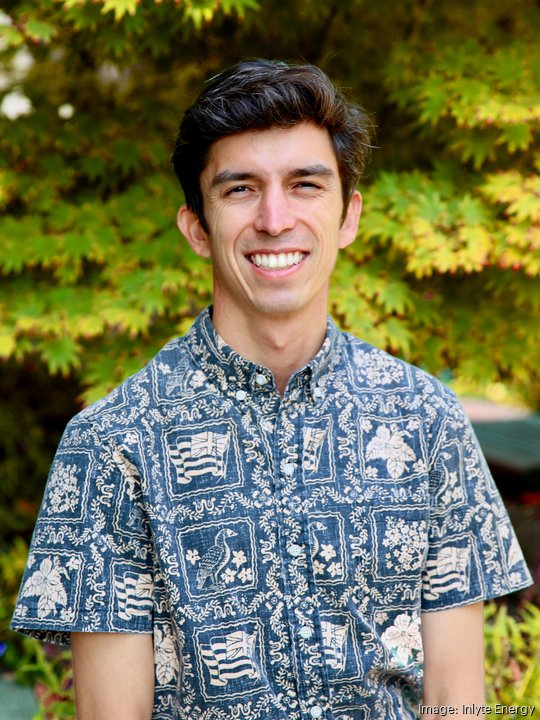
Editor's note: In our 2024 Startups to Watch feature, the Silicon Valley Business Journal and San Francisco Business Times present startups and founders building groundbreaking products and companies in the Bay Area. Inlyte Energy is one of 17 we profiled this year — to read more about our mission and the other startups we're featuring, click here.
Batteries are the backbone of electrification amid the global effort towards net zero emissions, but they come with a myriad of issues from supply chain bottlenecks to mining and high material costs. However, two abundant and relatively low-cost materials could help accelerate the industry: table salt and iron.
Antonio Baclig learned about this battery technology at Stanford, but it was growing up in Hawaii that really shaped his worldview. "It's an amazing place to grow up, and it really made me feel from a young age how amazing the natural world is, and also how fragile," Baclig said.
About Inlyte Energy
Founded: 2021
Founders: CEO Antonio Baclig, VP of Engineering Will Gent
Headquarters: San Leandro
Employees: 15 full- and part-time
Total funding: $8.1 million
Why are sodium-iron batteries innovative?
Antonio Baclig: We call it iron and salt, it's literally iron and sodium chloride — table salt. Those are the ingredients that store the energy. There's concerns today about supply chain and materials, especially with mines. These are materials we can search for in the U.S. or any countries, and they're abundant. That also means they're very low cost. And it's a type of system that can have a pretty high round-trip efficiency.
How far out are you from commercially launching?
Baclig: We want to go very quickly. We can make our commercial-size cells today but we plan to build a factory in the U.S. We're planning on starting that construction in 2025, finishing in 2026. And we'd be out on large-scale installations in 2027.
Who do you consider to be your biggest competitors in this space?
Baclig: The competitors that concern me are the ones that are already very large. So, the whole lithium-ion industry. We're trying to supplant lithium-ion batteries on the grid. We think that they are the best technology for vehicles, phones and laptops, but it doesn't make sense to use the same battery for a vehicle as the grid.
Who are your target customers?
Baclig: Utilities, independent power producers, developers on the grid. It's a whole ecosystem. But our technology could also be used in buildings in a smaller commercial or industrial space. We're exploring that, as well. It comes back to the mission of the company and for me, looking to make the biggest impact on climate change.
This seems like a difficult sector. Even Tesla is working on it.
Baclig: Yeah, exactly. We feel like we have a shot to be a kind of step change in costs. It would be extremely beneficial to help solar and wind to continue to scale up. Here in California, we're going that route but it's costing the state a lot. For me, it's the rest of the world. We really need stuff to be as cheap as possible. And that's what drives me every day.
A sodium metal halide battery was actually first invented in the 1980s. There are a couple of companies in the world today selling sodium metal halide batteries — those use nickel, so it's more expensive. In order to get to market quickly, we're really leveraging all the development that's been done on sodium metal halide batteries and we're making a next generation one that's going to be so much lower cost. We have a handful of people who were there at the beginning. They are in the UK. They've been working on it for 40 years.
Is there anything else you think people should know?
Baclig: Our main goal is the battery, the lowest levelized cost of storage. But I also want something to be very reliable and safe, and those are also the properties of our battery. The safety record of the sodium metal halide battery is very good. It doesn't have a fire risk.



